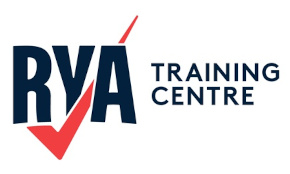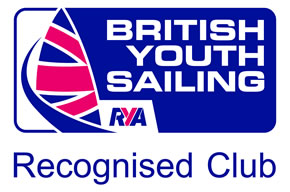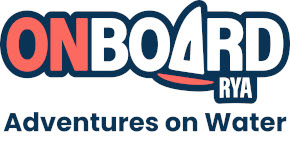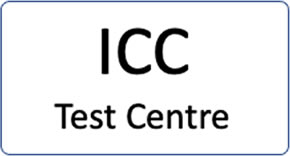Crawley Mariners Yacht Club
The aim of the Club is to provide an opportunity for people of all ages to enjoy a variety of dinghy sailing activities. Our sailing programme offers a wide range of organised events both at our home base at Hedgecourt Lake and at the coast. We've written these notes for the benefit of prospective members. We hope that they give you a flavour of what Crawley Mariners has to offer and will help you to decide whether our club is the right one for you to join.
What sort of club are we?
Not all sailing clubs are the same. This is partly because of the nature of the water at which they are based, or the facilities available on the club premises, but also because of the different traditions and ethos of each club. Clubs may be large or small, may put different emphasis on racing, training, cruising or social activities, and may rely to different degrees on volunteers or professional staff for the services that they offer. The main things that characterise our club are:
- It's very friendly. We actively set out to make new members welcome and do what we can to help them get established in the club. Although we enjoy racing competitively, we don't take it more seriously than we should, and encourage newer members to take part as they develop their skills.
- It's run on a voluntary and self-help basis. This means that any training courses or other sailing events that we run are staffed by Club members who are qualified instructors and who do this in their own time because they want to help others to discover or get the most out of their sailing.
- It's affordable. This follows directly from the last point. We aim to keep our costs of membership and training courses to a level at which they offer an opportunity to as many people as possible to get involved in sailing.
- We offer a wide range of sailing opportunities. Our lake at Hedgecourt is open all the year round and there are organised club activities there between March and December. We also have around 20 coastal cruising or racing events in our calendar each year.
- We make it a priority to support and encourage younger members. Each month we hold a Saturday Club at which young people can develop their experience. We also hold a Junior Helm Week during school summer holidays and take groups of teenagers to the coast for residential weekends twice each year.
What don't we do?
Most of the limitations on what we can offer as a club come from the fact that we value its essentially friendly and informal character, and don't want it to become more commercial in nature. So:
- Although we are proud to be a recognised RYA training centre, and offer a range of courses for beginners and improvers, there is a limit on the number of such courses that we can run, given that they are all delivered by volunteers, so that places may be limited. However if you are unable to secure a place on one of our own courses we are happy to suggest alternative training opportunities at commercially run centres.
- Although our club house offers good basic facilities, we do not have a bar or provide any catering services. However we do have a simply equipped galley area, and we organise two or three social events each year at venues in the nearby area.
Also, although we are very fond of our lake and the opportunities it offers for sailing in quiet and lovely surroundings, its size and its depth mean that it is not the place to sail if you are looking to develop your experience in high performance dinghies or catamarans! However some of our more experienced helms do enjoy sailing in boats of this type in our coastal racing events.
How much does it cost to be a member?
We offer a range of membership categories. For example family membership covers all family members living at one address. See the Membership About Membership page for current subscriptions and entry fees (payable on joining the club). The membership year runs from 1 January to 31 December. On renewal, there is a discount for those received by the end of February.
What training do you offer?
Our training is carried out at weekends by club members who are qualified RYA instructors. We run basic training courses in the summer shortly after our Open Day. These courses (Level 1/2 and Stage 1/2) aim to give new members with no previous experience an opportunity to learn some of the basic skills of boat handling.
For the junior courses we use Topper dinghies owned by the club or loaned by other members, and tuition is given by the instructors from supporting power boats. We normally aim to run more advanced junior training courses later in the year, to encourage young people with a year or two's experience to develop their skills to the next level. Courses for adults also use club boats or boats loaned by members, but in this case the boats are larger, and tuition is normally given by instructors who are in the boat with the course members.
What are the Saturday Clubs and how do they work?
Once each month we run an all day event which is aimed at giving both adults and young people an opportunity to develop their skills. Although formal training is not given, these sessions are run by qualified instructors who are able to give advice to those taking part. You are expected to pre-register for these events during the preceding week so that we can make sure that sufficient boats and instructors are available on the day. The older juniors are able to use the Club's Toppers or RS Fevas according to their ability and experience, whilst we also have a small fleet of Optibats which are more suitable for the younger junior members. You can of course use your own boats but in this case you (or in the case of juniors your parents) will be expected to be responsible for getting them ready and ensuring they have all the necessary components.
What activities are there for young people?
As well as the monthly Saturday Club we run a Junior Helm week during the school summer holidays. For a small additional charge, junior members can join either morning or afternoon sessions at the lake for five days of fun activities. This special week is very popular, and we hire additional boats from other clubs in order to be able to include as many young people as possible, although we do have to limit the total numbers involved to around 80. With such a large group we don't offer any formal training during the week, although most of those who attend find that their sailing skills will improve as well as having a lot of fun.
Twice a year take groups of teenagers to a residential activity centre on the shore of Chichester Harbour. Here they get a chance to sail on some more open waters and to experience tidal conditions. Most of the sailing is done in larger boats accompanied by instructors, although some of the more experienced juniors will also get the opportunity to sail in faster boats such as Topper, Laser 2000 or Quest.
How do I get started if I don't have my own boat?
One option is to come to the Saturday Clubs, where you may be able to use one of the Club's own boats. Another good idea is to put your name forward to take part as a crew on one of our cruises. Cruises based in Chichester Harbour are generally more suitable for less experienced crews than the more ambitious ones that are held on the Solent or at other venues.
It is also possible to borrow one of the boats owned by the club. See ‘Here’ for the details on the conditions and procedure.
However sooner or later you are likely to find that you want to have a boat of your own. Club members are good sources of advice about which boats are particularly suitable for the sorts of sailing that we do (although they don't necessarily all agree!). Wooden boats have their own charm, and suitable models may be found on the second hand market for a few hundred pounds. Plastic or fibreglass boats are attractive because they generally require less care and maintenance, however they tend to cost more as they may not be in such plentiful supply second hand.
We generally recommend the Topper as a first boat for young sailors. This is a popular robust design that has stood the test of time and given pleasure to generations of youngsters (and some not so young). Spare parts are readily available if needed, and the enduring popularity of the class means that boats are relatively easy to buy or sell without risking a big loss in value.
Can I store my boat at the lake?
Yes, for a supplementary annual charge and subject to the availability of spaces.
What do we expect of our members?
Members are required to observe the various byelaws set out in the Club handbook, although these are largely a matter of common sense. We are keen to encourage young people to be involved in sailing but we do ask parents of children under 10 to remain on site at the lake during Saturday Clubs or training events. And we expect other parents to return to collect their children promptly once the sailing session is over.
Also, it is a condition of membership that adult members are required to make themselves available to help run the racing events held at the lake or at the coast, typically for two days each year. This is organised on a rota basis. In most cases you will be asked to act as an assistant race officer, which involves keeping records of lap times of competitors. Alternatively you may be asked to act as a crew member in one of the support boats. In either case, experienced members of the race day team will give you guidance on what you are required to do.
HEDGECOURT LAKE
The lake was established during the 16th Century, together with Wiremill Lake and Furnace Lake, as part of a planned three-lake system. The three lakes were linked as part of an iron processing industry. Wiremill Lake was originally a hammer pond and was known as Woodcock Hammer, and was used to make wrought iron products. Hedgecourt was established as a holding pond for Woodcock Hammer, and had an original area of around 45 acres plus some surrounding marshland. Hedgecourt had its own corn mill but the rights to operate the sluices at Hedgecourt were retained by the owners of Wiremill up until 1912. This meant that the corn miller at Hedgecourt did not have ultimate control of when he could operate his mill. Meanwhile Furnace Pond had a greater depth of water and fall from the overflow outlet than the other two ponds, and this was used to drive a more powerful mill to operate the bellows for an iron ore furnace. This was used to produce pig iron from the locally extracted iron ore, burning timber from the surrounding forests.
The mills associated with the original iron operations closed in the late 18th Century. Wiremill was converted to a wire-producing mill, hence the change of name, and later continued to operate as a corn mill. The original mill cottage at Hedgecourt - now just the southern end of the present building - was built in the 1660s. In the mid-18th Century a windmill was built on land at the south east side of the lake, although this was only in place for a limited period and had disappeared by the end of the 18th Century.
HEDGECOURT LANE
For many years the lane serving the lake and the adjoining properties had a rough unmetalled finish that was prone to deterioration during periods of adverse weather. Maintenance of the road was predominantly carried out by volunteer members of the sailing club. With this task becoming increasingly onerous in recent years, the club investigated the possibility of laying a tarmac surface to the lane. Following discussions with neighbouring properties and consultations with club members, a plan was agreed under which the majority of the project would be funded by the club, with contributions from all the other parties who had rights of access via the lane.
Work on upgrading the surface of the lane was completed in 2015. At the same time, the opportunity was taken to recognise formally the shared responsibility for maintenance of the lane, by setting up an independent fund with annual contributions from each of the properties concerned. A small group of trustees was established for this fund, with representatives from both the sailing club and the other landowners. It was agreed that the fund would be held in the name of the Hedgecourt Lane Management Group.
CRAWLEY MARINERS YACHT CLUB WHERE IT ALL STARTED………….
In November 1963 an article appeared in the local newspaper
"Good news for local boating enthusiasts"
Twenty six such people ‘tied up’ at the Fountain Hotel in Handcross, last week to form a boating club. “It soon became obvious that there is a great need in this town for a club which will cater not so much for the dinghy enthusiast, but for the family man who just wishes to either cruise or potter about in boats” said Mr B W Spicer. “It is also hoped to help those, who having built their first boat, want some guidance on how and where to use it”.
Mr Spicer, a keen dinghy owner and member of a south coast sailing club called the meeting. He was elected secretary of the temporary committee, with Mr H G Winter as chairman and Mr G E Evans as treasurer. Others elected were Messer’s G Everett, R Hancock, T Rogerson and P Hayes.
Anyone interested in joining the club should get in touch with Mr Spicer who lives at Dixie,Church Road, Worth. Failing this you can go to the next meeting on December 17th at the Fountain Hotel. The meeting will cast off at 8pm.
Our club was formed on 23 November 1963 (the day after President Jack Kennedy was assassinated). We were affiliated to both the Royal Yachting Association and the British Canoe Union. Our committee consisted of all the usual post holders plus a Swimming Secretary, a Canoeing Secretary, and the Sailing Sub committee had Boy and Girl Captains as members. In the early days, Juniors were not allowed to be members unless they could swim at least 100 yards. There was a test in the local swimming pool, supervised by the Swimming Secretary!
Dry Meetings have always been a feature of Crawley Mariners and at various times have taken place at Three Bridges Football Club Pavilion, The George Hotel, Gatwick Manor, The Crawley Club and now at The Haven Centre, Crawley Down.
A problem early Mariners had was no where to sail, so they formed a Sailing Waters Sub committee, whose purpose was to find suitable sailing venues, including the possibility of the new reservoirs at Weir Wood and Bough Beech. The Water Boards were considering allowing sailing at these lovely new lakes, but others wanted them for fishing only. Competition was fierce and local MPs were involved. (Eventually, sailing was allowed at Weirwood, but only in the winter months, but that’s a whole other story). Meanwhile Crawley Mariners travelled. We sailed at Shoreham, Felpham, Chichester Harbour, Wareham, Brighton, and Lancing Sailing Clubs and almost any other stretch of coast with suitable launching. Canoe racing on the River Arun also featured in the programme. Camping and sailing over Spring Bank Holidays was also popular. Hedgecourt Lake is first mentioned in club minutes in 1966. In 1967 we were allowed to sail there on weekdays only by the owner, Dr Ashby. Members had to pay an additional fee of 15s (75p) per year, and fly a club burgee for this privilege. 20 members took advantage of this offer. Also in 1967, we made a successful application to sail at Tilgate Lake, and acquired the use of Tilgate Hut that we used for storage and maintenance of boats etc. We continued to use the hut right up until the mid 1980s.
Dr Ashby decided to sell Hedgecourt Lake in 1976, and after some competition from Mr Friend, who by that time owned neighbouring Hedgecourt Farm, our offer was accepted. We became a limited company in 1976, raised a mortgage (after the Treasurer of the day entertained the local Bank Manager to a rather good lunch) and for the princely sum of £32,000, we became the owners of both the lake and some surrounding land in February 1977. In those days sailing took place from the Mill Lane end of the lake, members having to tow their boats to the lake each time they wished to sail. We had the use of a rented field, known as the Bennett Plot, for car parking and a wooden site hut adapted for use as changing rooms. We also had a portaloo! It was not until we managed to get planning permission in 1986, that the move to the west end of the lake became possible and we had moved lock, stock and portaloo by 1 April 1987. For the first time, we had a dinghy park, and members no longer had to tow their boats and rig from scratch every time they wished to sail. Although this has brought many advantages, it has completely changed the nature of the club, with more events at Hedgecourt, and much less travelling to other venues.
Our clubhouse was built in 1995 and with the aid of a Lottery Grant electricity was installed in 1999.
This is just some of the Crawley Mariner’s history, some of which I remember, and some I have discovered by going through our archives, but if anyone reading this knows more, do share it so that it’s not forgotten as we sail on into the future. It is thanks to our members and hard working committees over the years that we now have such a successful club.
Adrian Fisher
Member since 1982
Commodore 2012 -2015






